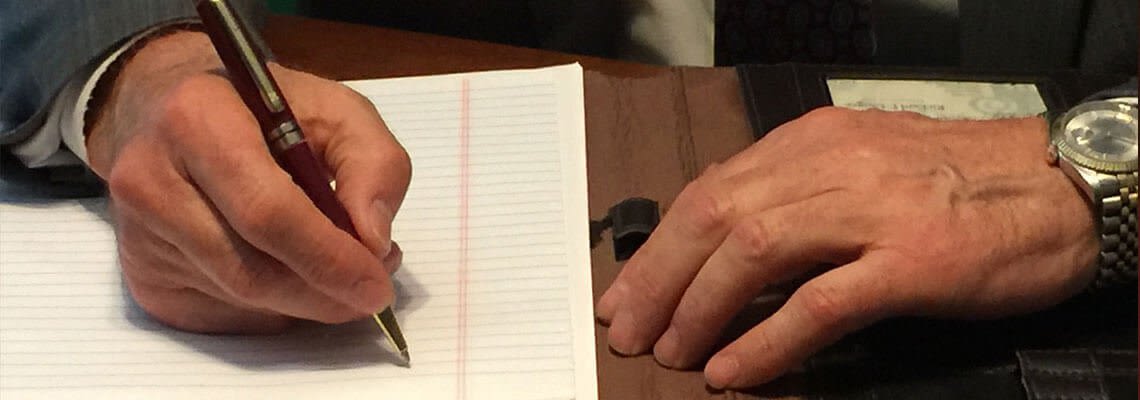
THE FORENSIC INTERVIEW OF THE CHILD AS EVIDENCE IN A SEXUAL ABUSE CASE: TRIAL BY VIDEO
In virtually all jurisdictions in the United States there are child advocacy centers where children are taken to be interviewed following claims of being sexually molested or physically abused. These advocacy centers are theoretically staffed by people trained to question children in a non-threatening way and with techniques designed to elicit actual facts from the child. The child is ordinarily questioned in a room painted in bright colors while sitting in a large stuffed chair. The child often is given a stuffed animal to hold while the interviewer sits directly in front of the child often leaning towards here in rapt attention. Watching the interview through one-way glass or on a video monitor are the police assigned to investigate the case. Often toward the end of such interviews the questioner will leave the child alone in the room with paper and crayons while she consults with the detectives as to follow-up questions. What is significant about such interviews are the following:
As the first interview of the child by a “trained” examiner it is usually the only statement of the allegations the defense attorney will receive during the discovery process; and
The interview usually occurs within days of the first report of the allegations to the authorities; and
Usually the only areas of inquiry addressing the child’s story are those corroborating the child’s claims. Improbabilities, inconsistencies or outright falsehoods are ordinarily left unaddressed for fear of traumatizing or re-victimizing the child.
The forensic interview of the child in a sexual abuse case has been a routine part of the investigative process for years. What has changed in the past 20 years is the impact of victim’s rights legislation on the use of such interviews. While the defense attorney was once able to question the child between the forensic interview and the trial, that opportunity to explore the reliability of the original interview is now gone. Under current law, the child cannot be interviewed without the consent of her legal guardian. (At the suggestion of the prosecutor this virtually never occurs) Consequently, the most important piece of evidence in the investigation and trial of a child sex case is left unexplored as to its truth and reliability until the child is called as a witness at trial.
Until very recently the rules of evidence did not permit the prosecutor to introduce the video of the forensic interview as evidence of trial. Exceptions to the hearsay rule did permit portions of the interview to be introduced by the prosecutor to rebut claims of recent fabrication or to complete portions of testimony where the child’s memory had failed. Now, however, the rules of the game in Arizona have changed completely: Prosecutors using a new and essentially incomprehensible rule of evidence are successfully seeking to have the entire forensic interview played for the jury and admitted as evidence for the jurors to consider during their deliberations. The impact of this change has had devastating consequences for the defendant:
The child witness is now routinely instructed to claim she “doesn’t remember” in response to questions by the defense attorney on cross examination; and
The video is then introduced by the prosecutor as evidence under the new evidence rule; and
The jurors are allowed to play and replay the video during deliberations.
Juror questioning by defense investigators following recent trials of child sexual abuse cases has revealed the devastating impact this change has had on verdicts. In the face of prosecution witnesses clearly lying under oath, forensic evidence (like DNA) directly contradicting the child’s version of events, and a defense presenting a compelling narrative consistent with the defendant’s innocence – in spite of all of such exculpatory evidence - defendants are being convicted. Jurors have repeatedly stated the video was the only evidence they considered during their deliberations.
What is most troubling about this state of affairs is individuals are being convicted solely on the basis of hearsay evidence their defense attorneys are unable to challenge thorough cross-examination. The video of a cute 9-year-old talking to a friendly and uncritical interviewer 3 years before the trial is unassailable evidence. The only way to address this problem is for the defense attorney to convince the court through pretrial motions that the admission of the forensic video is so prejudicial as to outweigh it probative value and to argue its admission violates the Sixth Amendment of the United States Constitution by denying the defendant the right to confront his accuser. Left unchallenged, the current situation of “trial by video” will result in the conviction of many innocent people. Experienced criminal attorneys like Tucson attorney Richard Lougee are in the vanguard of efforts to put an end to this miscarriage of justice.
